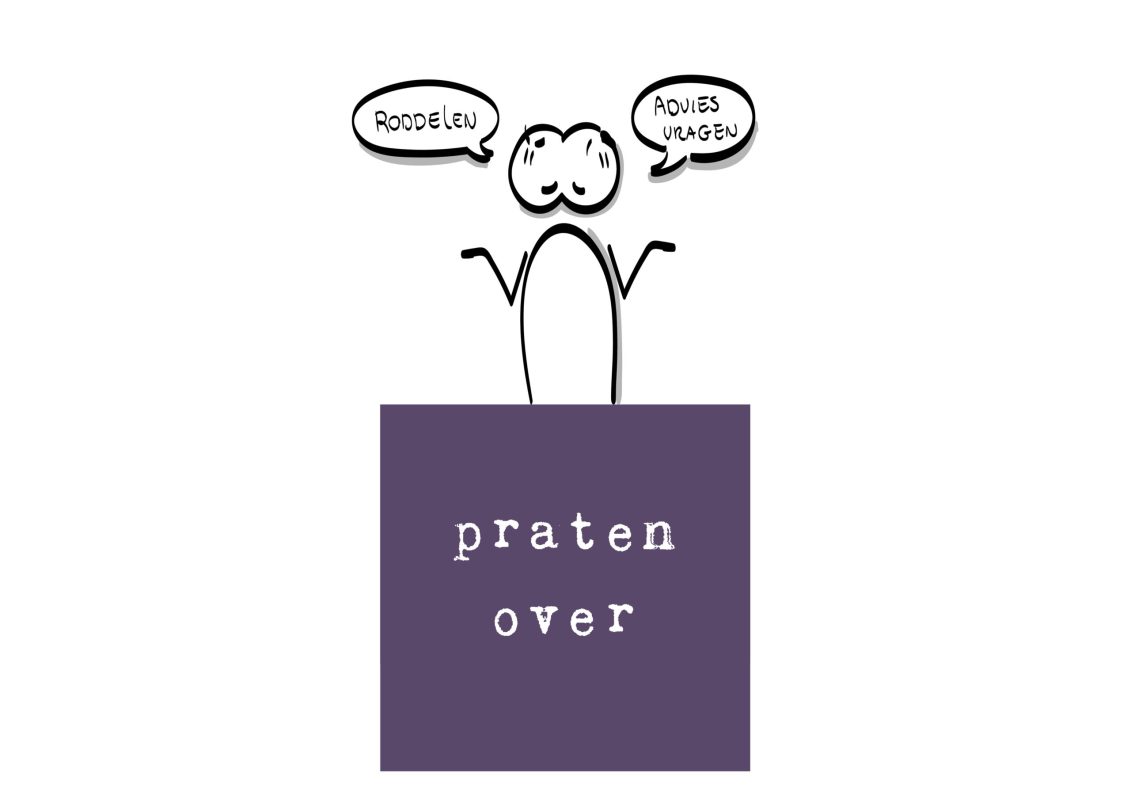On gossiping and cooperation...
That we sometimes, or even regularly, talk about each other is not news. And that we find it annoying when we notice people talking about us behind our backs is also no news. So why is it that we all talk so much about each other instead of with each other? And how can you ensure that talking about does not create a negative gossiping spiral in the team?
It turns out that two-thirds of the time we talk to others, we talk about others. And we do this for a reason: talking about others helps build trust with your interlocutor. It gives you information about how others look at a situation and you can better assess your own position in the group.
However, talking about others can also be used to gain power within a group, to reveal something in a gossip or - in the case of slander - to give another person a worse position within the group. In slander, you damage those you talk about.
Many studies have been done on gossiping and they also show its usefulness in various ways. For instance, gossiping is said to result in a kind of learning process, making you perceive your surroundings in a different way. We learn from it who we should keep an extra eye on because he/she might be a danger to us. In addition, sometimes gossiping simply provides relief: you are annoyed by something someone has done, you need to get rid of it and then you are done. We don't always want to solve everything through formal communication with each other.
Thus, gossiping helps us stay with the group we like to be part of. This wanting to belong to the group is also a reason why we often talk down on others instead of directly (with irritation) criticising or giving feedback (from connection). After all, this can cause your position in the group to deteriorate because both criticism and feedback are sometimes received with resistance and as negative. The safe way then seems to be to just gossip. Sometimes this also invites the other person to mediate. That other person is then given an unasked-for and difficult task.
Here comes an important point for cooperation: know that as long as you only gossip about someone, nothing will change. Only when you ALSO start the conversation with the person it is about and get your point across (from connection in feedback) to the other person, you increase the chances that something will change. Don't do this and stick to talking about it? Then know that there is a good chance that the behaviour that annoyed you will repeat itself.
On the Cooperation Scale, we distinguish between goal-oriented and problem-oriented viewing. If the problem is central, then talking about quickly becomes gossiping and badmouthing. However, if the common goal is central, then talking about can also have an advisory function. By talking to John about why it is that he can work so well with Pete, you can learn something to improve your cooperation with Pete. But then you still have to engage with Pete yourself afterwards.
In short, talking about can make a positive contribution to cooperation provided it is used with a positive goal in mind AND if it does not stop at just talking about. Let 'talking about' be a springboard to 'talking with'!

